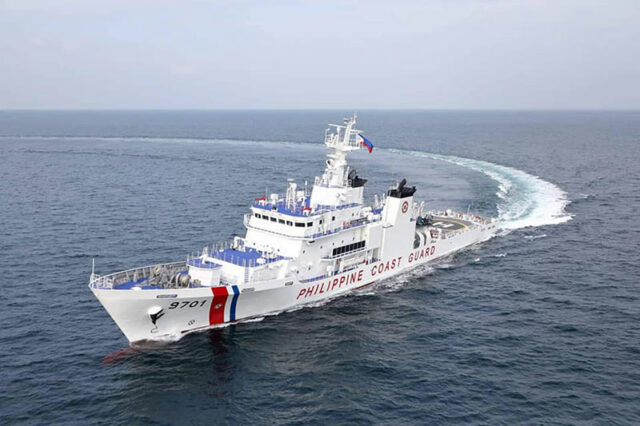THE PHILIPPINE Senate is prepared to act as an impartial court ahead of a potential impeachment trial against Vice-President Sara Z. Duterte-Carpio, the Senate President said on Tuesday, as more groups seek the ouster of the country’s second highest ranking official.
“It is crucial that members of the Senate approach it with the impartiality and objectivity demanded of us,” Senate President Francis G. Escudero said in a statement.
“Experience has shown that impeachment proceedings are inherently divisive and have the potential to polarize the government and public.”
The Presidential Palace has denied it had a hand in the filing of the complaint, reiterating President Ferdinand R. Marcos, Jr.’s initial pronouncement against the pursuit of an impeachment case.
Civil groups on Monday filed an impeachment complaint against Ms. Duterte, alleging she committed graft and corruption, bribery, and betrayal of public trust among other crimes. The complaint was endorsed by Party-list Rep. Percival V. Cendaña.
The complainants cited 24 grounds overall, including Ms. Duterte’s alleged misuse of billions of pesos in confidential funds during her term as Davao City mayor and Vice-President, failure to account for government budgets, and refusal to attend hearings in Congress.
Of the 24 articles in the complaint, nine were under culpable violation of the constitution and graft and corruption, with the complainants citing Ms. Duterte’s failure to account for her confidential funds in 2022 and 2023 at the Office of the Vice-President (OVP) and Department of Education (DepEd), which she headed from June 2022 to June 2024.
They also cited “rigged” bidding for DepEd equipment and her office’s P15 billion in unutilized funds in 2023.
Ms. Duterte was also accused of bribery and having unexplained wealth, with complainants citing her alleged accumulation of P111 million in personal accounts and hundreds of million more in joint accounts with her father.
They also wrote two articles for betrayal of public trust, accusing Ms. Duterte of abandoning her duties during the onslaught of Super Typhoon Gaemi as she left for Germany, and failing to condemn Chinese aggression in the West Philippine Sea.
The complainants also cited nine articles for high crimes, such as direct involvement in extrajudicial killings and threats made against high-ranking officials.
ANOTHER IMPEACHMENT COMPLAINT
A bloc of minority lawmakers on Tuesday announced they will be endorsing what would be Ms. Duterte’s second impeachment complaint on Wednesday with around 50 representatives from “progressive organizations and concerned citizens” planning to file on the grounds of alleged corruption and misuse of funds.
“Not just the confidential funds, but also the regular funds of the Office of the Vice-President and the Department of Education,” Party-list Rep. Raoul Danniel A. Manuel said in Filipino in an earlier media briefing, citing the complaint’s basis. “Part of it is also her failure to fulfill her responsibility to explain how she used the funds.”
The complaint comes amid the chamber’s ongoing probe into the OVP’s alleged misuse of P612.5 million worth of confidential and intelligence funds in 2022 and 2023.
Under the 1987 Constitution, grounds for impeachment include treason, bribery, graft and corruption, high crimes or betrayal of public trust.
Both impeachment complaints zeroed in on Ms. Duterte’s use of secret funds, which has been the subject of a congressional investigation. She denies any wrongdoing stemming from the probe, saying it’s politically charged and could be laying the groundwork for her ouster.
The House will hear the complaint, requiring one-third of its members, or at least 102 congressmen, to agree with the impeachment rap before the case is elevated to the Senate for trial. The chamber is headed by Speaker Ferdinand Martin G. Romualdez, a cousin of the president.
Mr. Escudero also directed his colleagues in the Senate to avoid making public comments on the allegations against the Vice-President, in line since with the chamber’s rules on impeachment.
“The Senate stands ready to fulfill its constitutional mandate with integrity and impartiality while upholding national interest,” he said.
“The outcome, whether in favor of or against the official involved, should not impede the Senate’s broader mission to serve our countrymen.”
Meanwhile, the Presidential Palace on Tuesday distanced itself from the first impeachment complaint filed against Ms. Duterte.
Questions now center as to whether the complaint will actually help advance efforts to hold the country’s second highest official to account for her alleged misuse of funds at the OVP and DepEd given the one-year bar rule in the post-EDSA charter.
Executive Secretary Lucas P. Bersamin said the impeachment complaint filed in the House of Representatives by several private citizens is clearly the complainants’ independent initiative.”
The endorsement of the complaint is “the prerogative of any member of the House of Representatives,” he added in a statement.
“The Office of the President has nothing to do with it.”
President Ferdinand R. Marcos, Jr. last week confirmed that the text message discouraging Congress from pursuing an impeachment rap against Ms. Duterte was indeed his.
“The President’s earlier statement on the matter is unambiguous,” Mr. Bersamin said.
CAMPAIGN PERIOD
Commenting on the impeachment rap, Manila Rep. Joel R. Chua said lawmakers will be “busy” not just in Congress but also in their respective districts as the 2025 midterm polls approach.
“We know that it’s already the campaign period next year,” he told reporters in Filipino on the sidelines of an event at the presidential palace.
Mr. Chua chairs the House Committee on Good Government and Public Accountability, which is leading inquiries into Ms. Duterte’s alleged fund misuse.
The House leader, meanwhile, said the committee will include in its report the Philippine Statistics Authority’s certification that one of the declared recipients of Ms. Duterte’s confidential funds has no birth, marriage, and death records.
A certain “Mary Grace Piattos” appeared on acknowledgement receipts submitted by Ms. Duterte’s office to state auditors in 2022.
“It appears that the acknowledgement receipt was bogus,” Mr. Chua said in Filipino, adding that the committee will check the identities of other declared recipients.
The committee is seeking the help of the National Bureau of Investigation to verify the signatures in the receipts, he added. — John Victor D. Ordoñez, Kenneth Christiane L. Basilio, and Kyle Aristophere T. Atienza

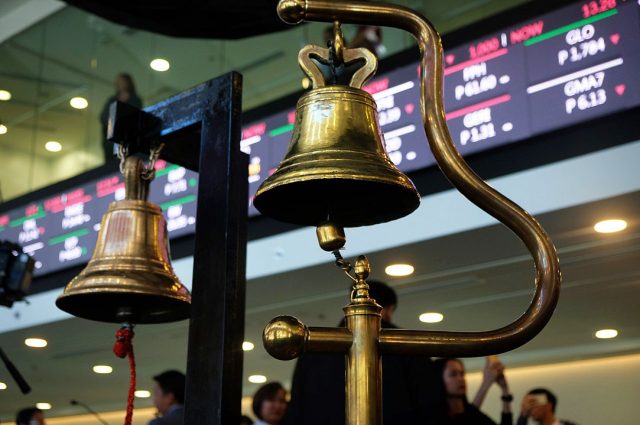
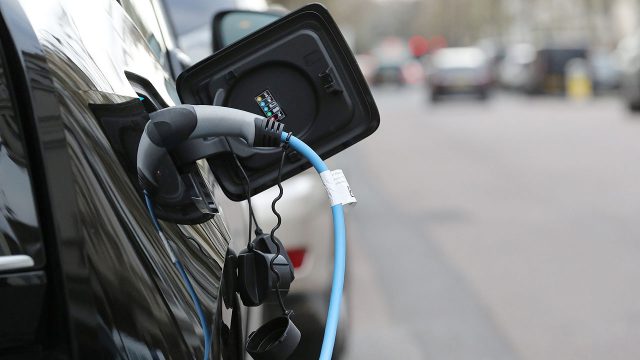

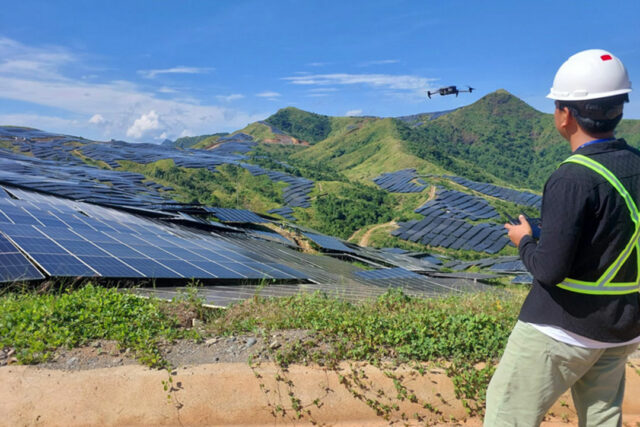
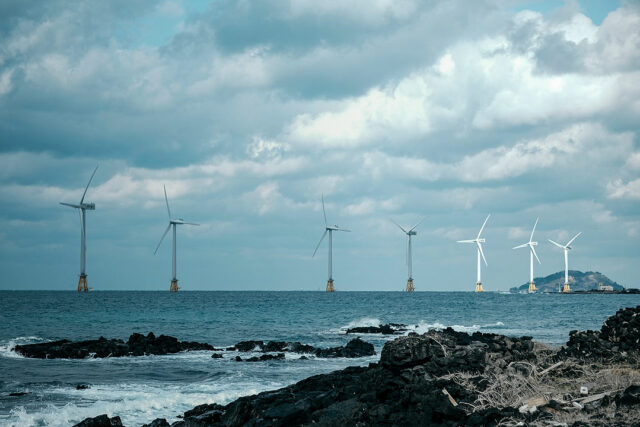

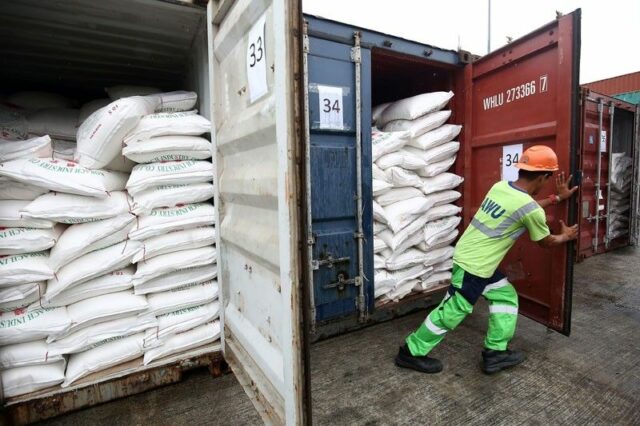
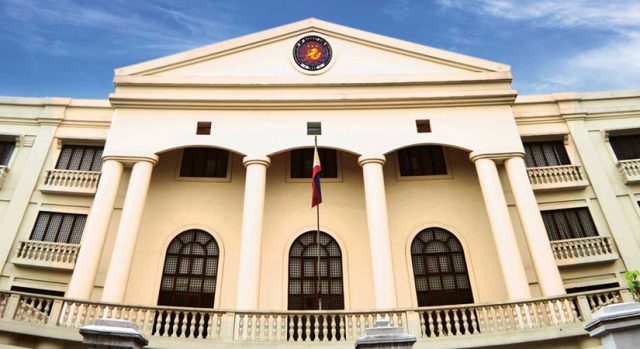
![[story 2 SARA] 20240110 widodo state luncheon yd-18 - PPA POOL YUMMIE DINGDING](https://www.bworldonline.com/wp-content/uploads/2024/01/story-2-SARA-20240110-widodo-state-luncheon-yd-18-PPA-POOL-YUMMIE-DINGDING-640x360.jpg)
